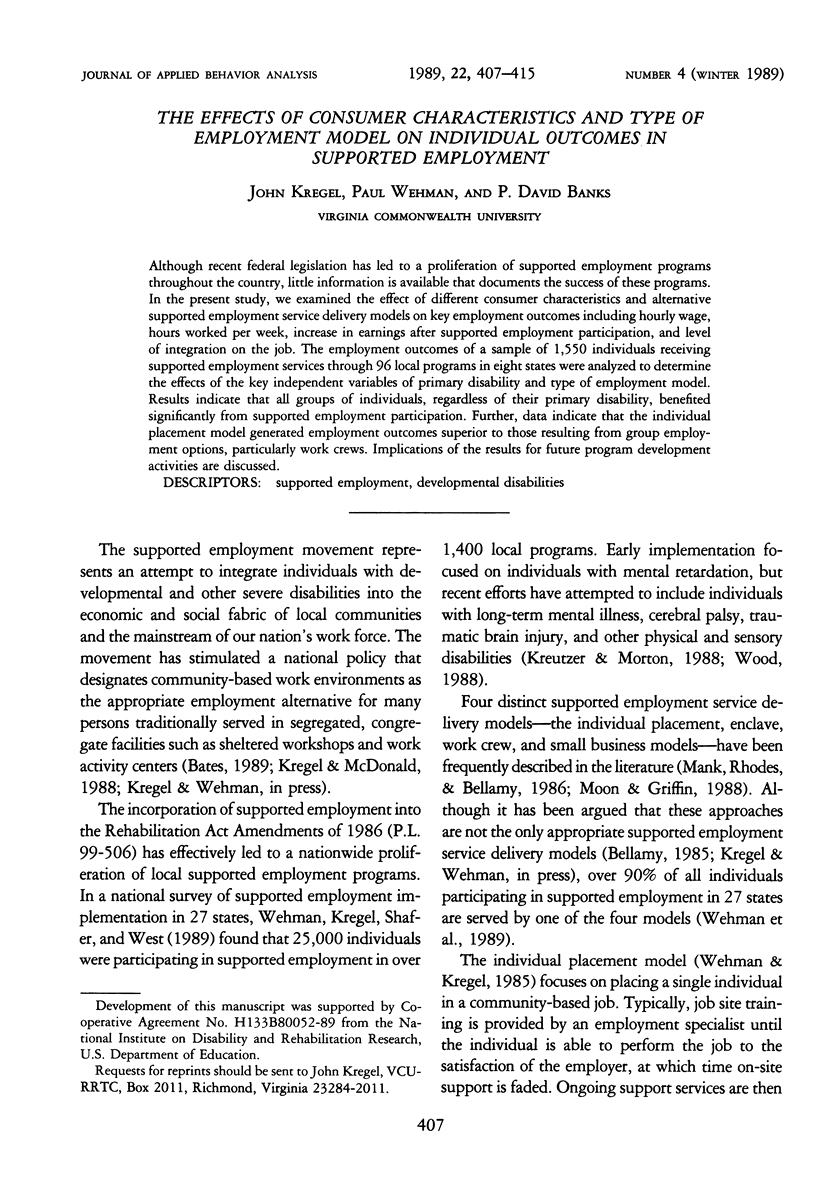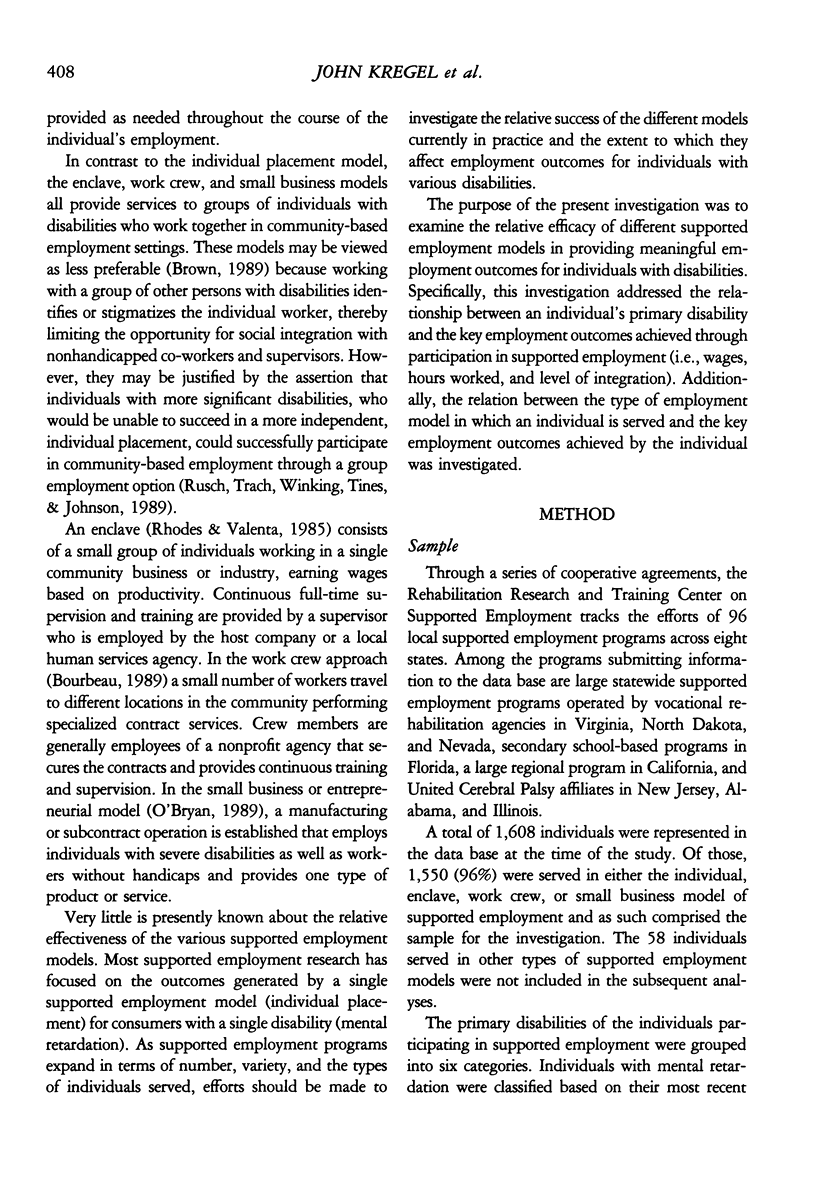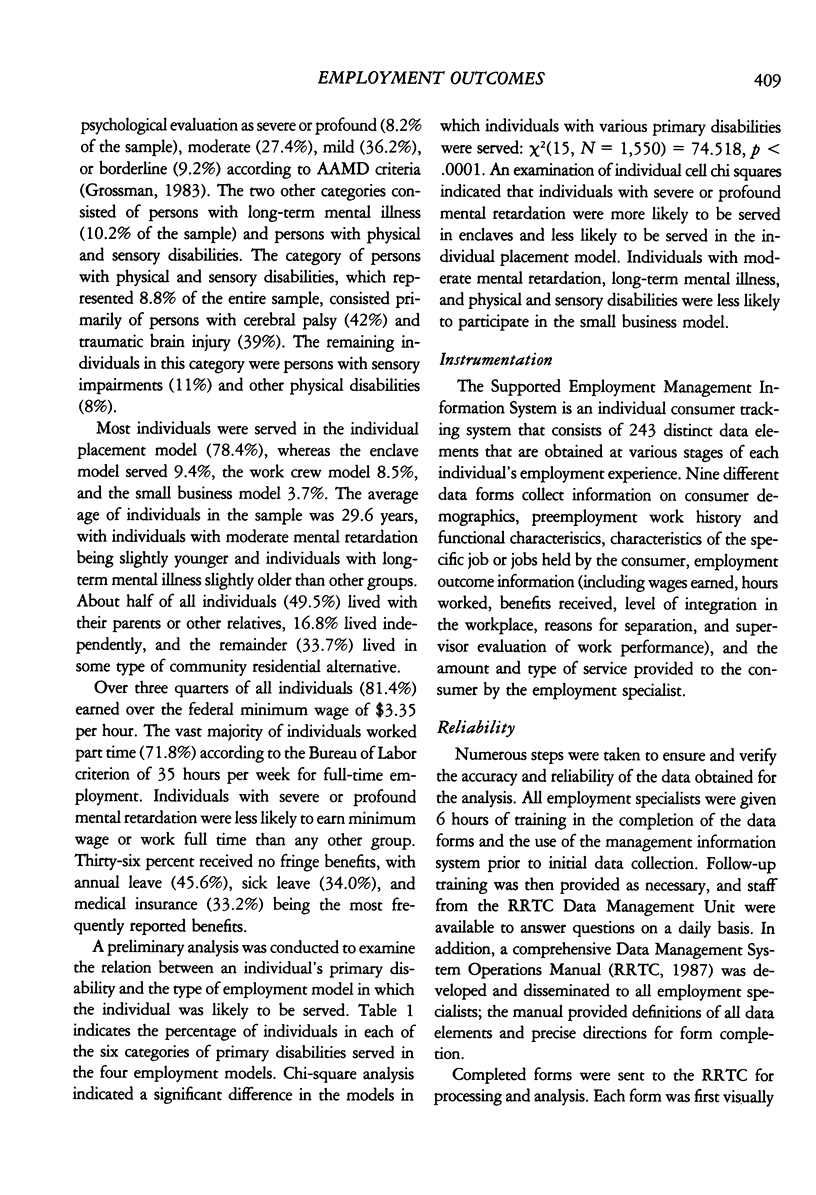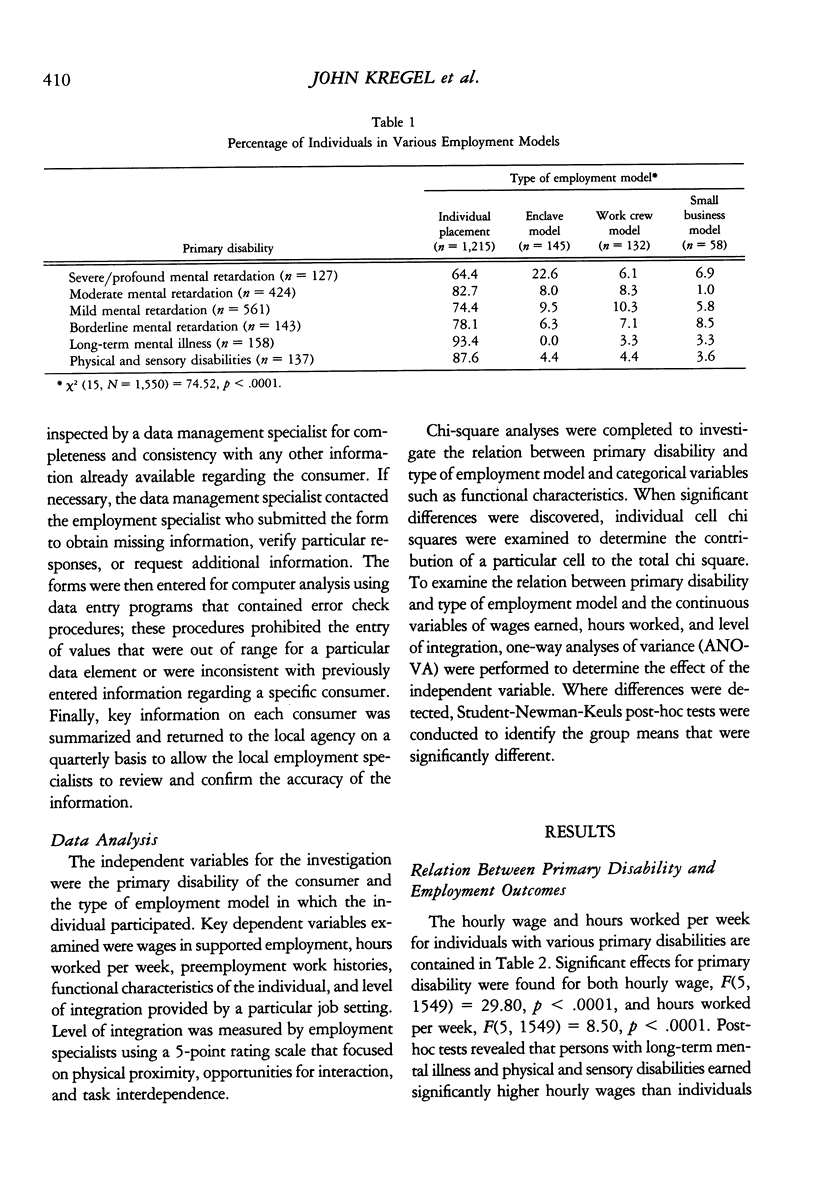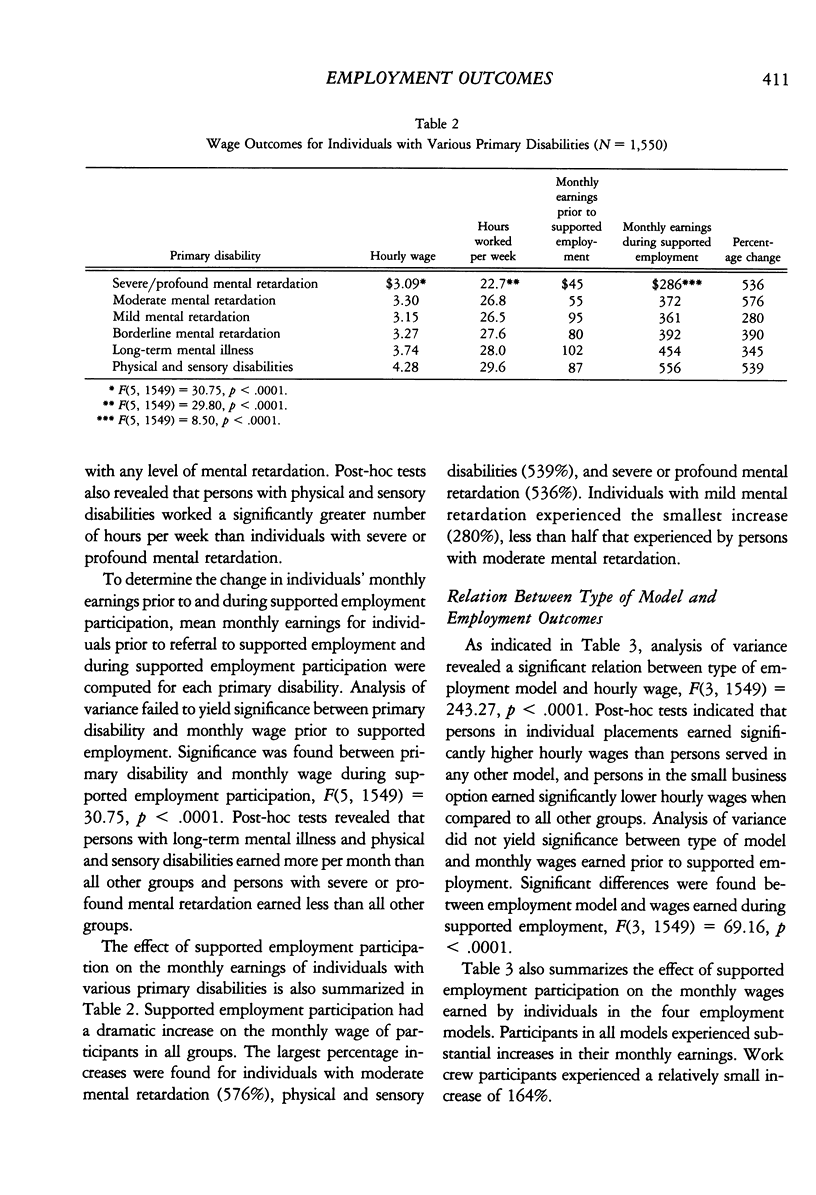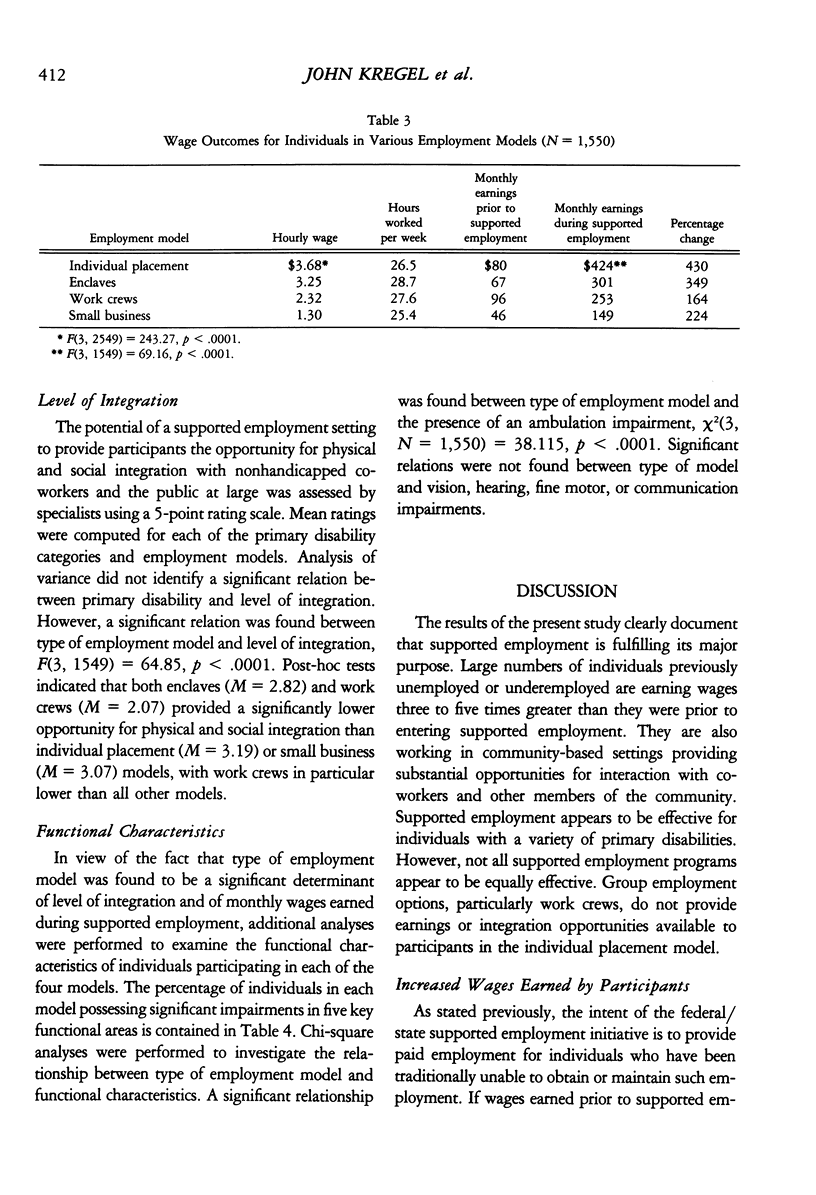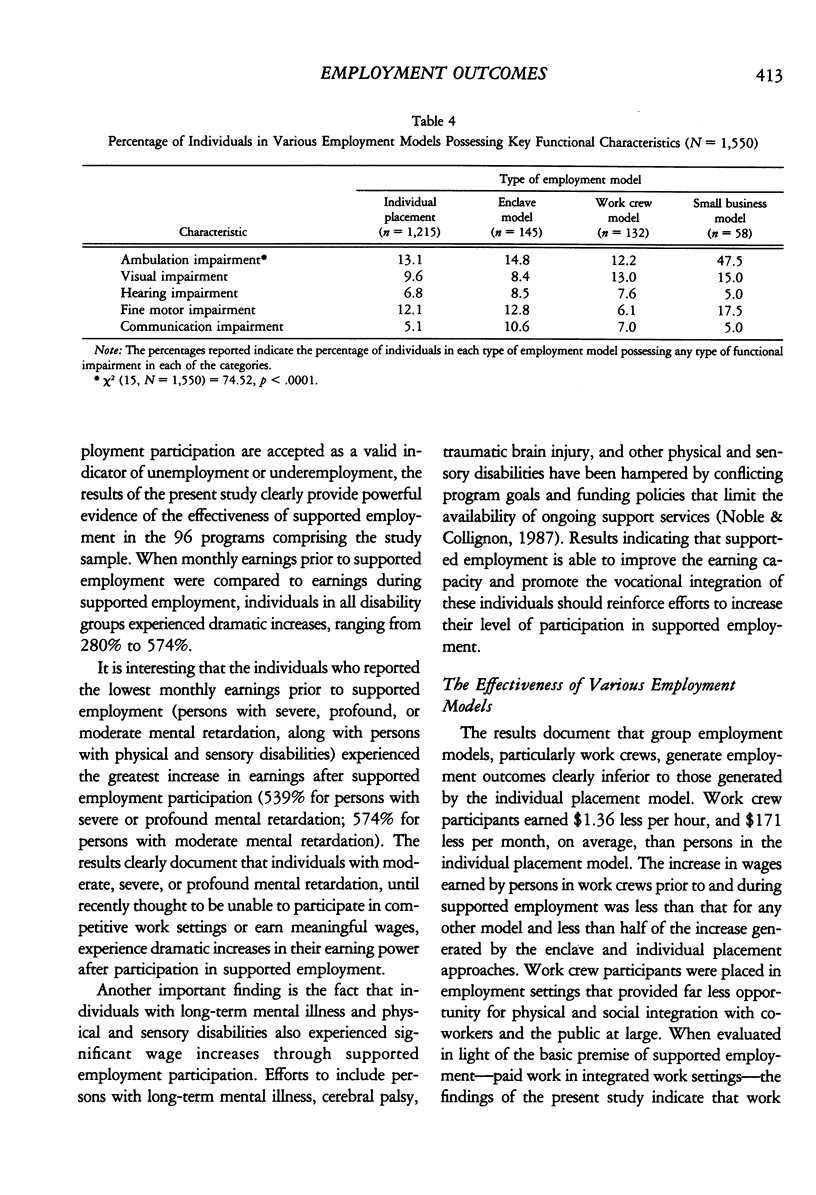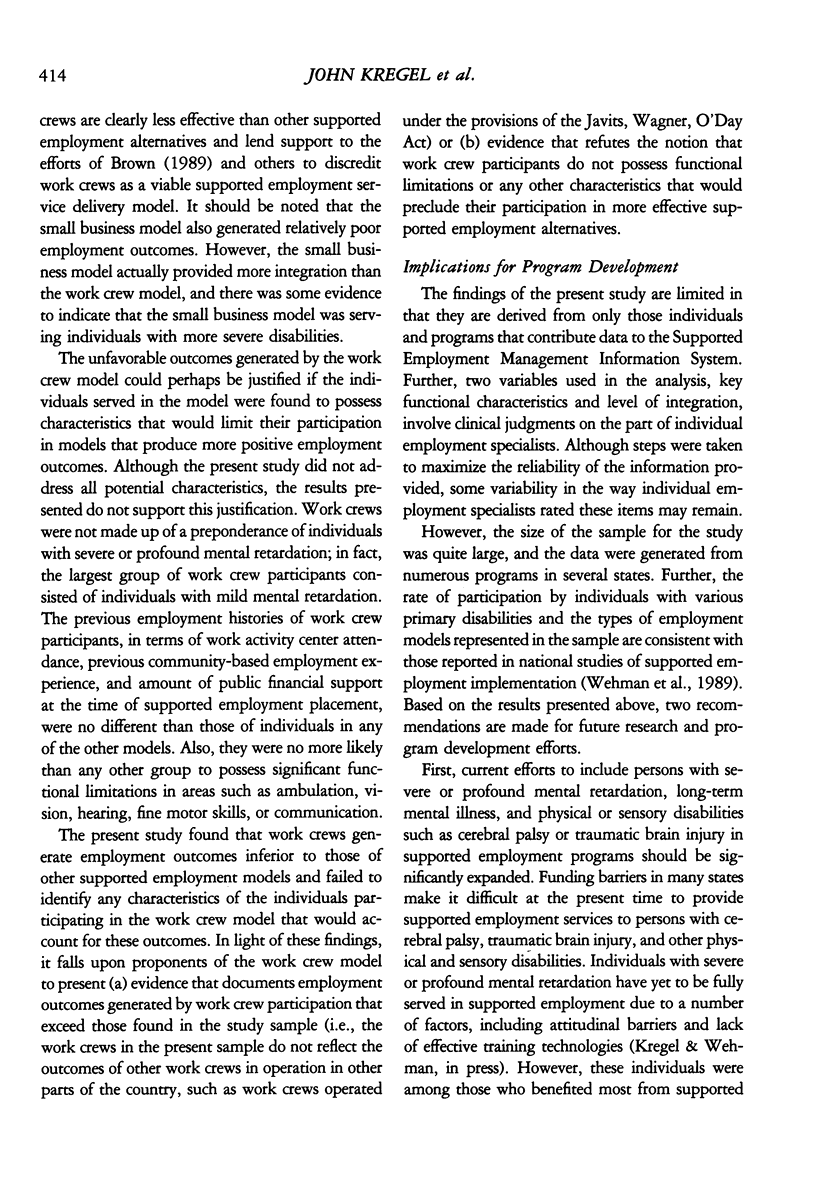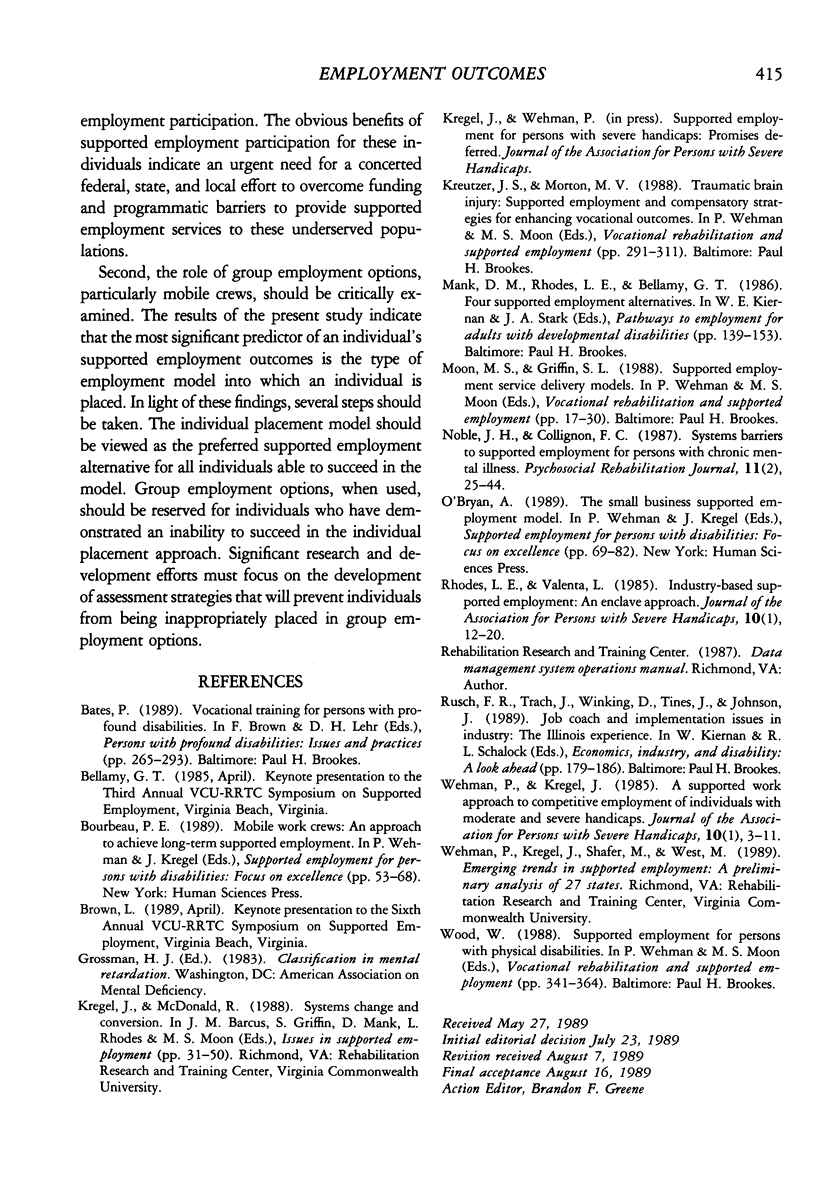Abstract
Although recent federal legislation has led to a proliferation of supported employment programs throughout the country, little information is available that documents the success of these programs. In the present study, we examined the effect of different consumer characteristics and alternative supported employment service delivery models on key employment outcomes including hourly wage, hours worked per week, increase in earnings after supported employment participation, and level of integration on the job. The employment outcomes of a sample of 1,550 individuals receiving supported employment services through 96 local programs in eight states were analyzed to determine the effects of the key independent variables of primary disability and type of employment model. Results indicate that all groups of individuals, regardless of their primary disability, benefited significantly from supported employment participation. Further, data indicate that the individual placement model generated employment outcomes superior to those resulting from group employment options, particularly work crews. Implications of the results for future program development activities are discussed.
Full text
PDF